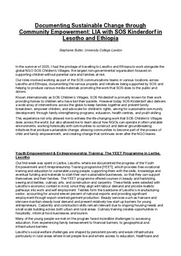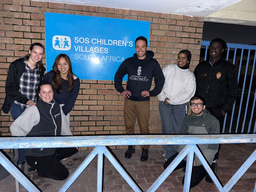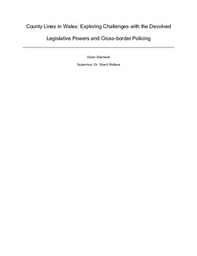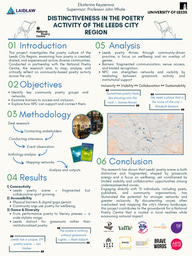When research doesn't go to plan... again and again

I came into this research project wanting to speak to people, hear their stories, and foster relationships and knowledge.
Turns out that takes far longer than I originally anticipated.
…And everything has kind of been turned on its head because of that
(artistically reflected by my headstand in the banner photo)
It’s a wonderful realisation that the path Laidlaw scholarship has started me on is one that I can see extending far into my future, both due to how fascinating I’m finding researching Pacific culture, and how the culture itself promises to foster relationships that will last a lifetime. However, when I flip to a short-term perspective on this research, the walls of impending output deadlines, eagerness to make an impact as soon as possible, and simply having my research go as planned come crashing in on me.
That has only been made worse by the realisation this last week that my plans to talk to people and get primary data are decreasing by the day. I was told on the day before the research period began (3 weeks ago) that my participant demographic was tiny, and largely reluctant to take part in research – and rightfully so, due to a history of anthropological misrepresentation and a lack of real-world, positive impacts from such research.
I was told I’d be better off doing this in the Pacific itself. I was told that my research was not and enviable task.
It’s fair to say that if it wasn’t for being contractually signed into the Laidlaw scholarship, I might have been scared off there and then.
To add fuel to the fire, I realised from the same conversation that my first few weeks of research would have to involve familiarising myself with the nuances of different Pacific cultures, etiquette, and ways of understanding the world. This pushed back when I’d actually be able to reach out to participants, which stressed me out, but I was sure would be fine as I’d still have half of the research period and the remainder of the summer to speak to some Pacific students.
When it seemed this part of my research couldn’t get any worse, while putting together a list of all the possible Pacific connections I could reach out to through the university and friends of friends (a list of a whopping 5 people), I realised how many of them were on holiday, not checking their emails, and enjoying much needed time with family after graduating or spending a long year away at a university halfway across the world from their home.
The culmination of all this?
I have no one to speak to for my research.

A depiction of how I feel when the research keeps presenting more challenges
This was one of the things I was most excited about for this project – to really be getting to the heart of something new rather than simply reading articles, and to challenge myself by engaging deeply with a whole new culture and community. Moreover, my readings from the first half of the research period have emphasised the importance of really getting to know people through their stories and perspectives, but also through small talk of their daily lives; laughing with them, bonding with them. In Tongan – and recognised further across the Pacific – this is called Tauhi Vā: nurturing social relationships across space and time (Tecun et al, 2018).
So, it’s been really disheartening to come to this realisation that not only am I stumped by no one reaching out to me to participate, but also that it is ethically and culturally more appropriate (and secondarily more valid as research) to be conducting my original plan for research at another time that isn’t restricted by Laidlaw time or location requirements. It’s clear to me that this may take years of growing relationships and trust, as well as being on the ground to connect with people and cultures in person.
I guess I’m discovering the joys of anthropology.

Today consisted of a big brain dump on all of the possible changes I can make to my research to accommodate the gap of primary data. If my project doesn’t actually have ‘the voices of Pacific students on climate change’ as my original title claims, then what questions within this topic can I answer on my own? What else hasn’t been addressed yet?
This filled me with excitement again and I spent a few hours writing down all of the things I have learnt and figuring out where the gaps lie that still have enough literature for me to formulate my own arguments. Not only did this exercise actually validate how much I have learnt in the first three weeks, but while re-reading my gibberish and garble I also realised that I’ve had an answer – my own argument as an academic – to a research question for the first time! It was a small moment that offered me my first chance to actually see how far I’ve come in three weeks, and to really feel proud of myself.
I also feel proud that I’ve faced this hurdle without too much stress. Despite the culminating factors and talks with my parents on the verge of tears due to all the challenges and changes, I do feel with hindsight that this has been a dawning realisation in the past three days that I’ve swiftly followed up with decisive action. I think I’ve really learned the lesson of embracing the changes of research and trusting that it will become the piece of work that it needs to be.
Yes, the unpredictability of research is hard, but it would be harder to resist these changes and produce an inaccurate and inappropriate piece of work because of that.
This relative calmness about this big change in research plans has also been helped by my mum and dog visiting St Andrews this past week and making the time with them to get back to things I love. Among lots of hikes, sea swims, and filming and photographing these activities, I feel I’ve had moments to step out of the research mindset and realise these my deviations from my original plan aren’t the end of the world. I can miss out on talking with Pacific students and still enjoy the things I love.

My dog Reggie offering some emotional support this past week
So, what have I learnt at the halfway point of the Laidlaw research period?
Well, I’m more adaptable and have come much further than I thought I had. I’ve learnt the value of taking real time away from the research to avoid getting overwhelmed by big challenges. Most importantly, I’ve learnt what it’s like to be hit by a brick wall in research again and again, but also learnt how to scale this wall each time and persistently prove to myself that while research is unpredictable and always changing, I can be unpredictable and surprise myself with change too.
References
Tecun, A., Hafoka, I., ‘Ulu ‘ave, L. and ‘Ulu ‘ave-Hafoka, M. (2018) 'Talanoa: Tongan epistemology and Indigenous research method', AlterNative: An International Journal of Indigenous Peoples, 14(2), pp.156-163.





Please sign in
If you are a registered user on Laidlaw Scholars Network, please sign in
It’s so lovely to hear you meet struggles and overcome them - it’s both relatable and inspiring! Thank you for sharing them :)